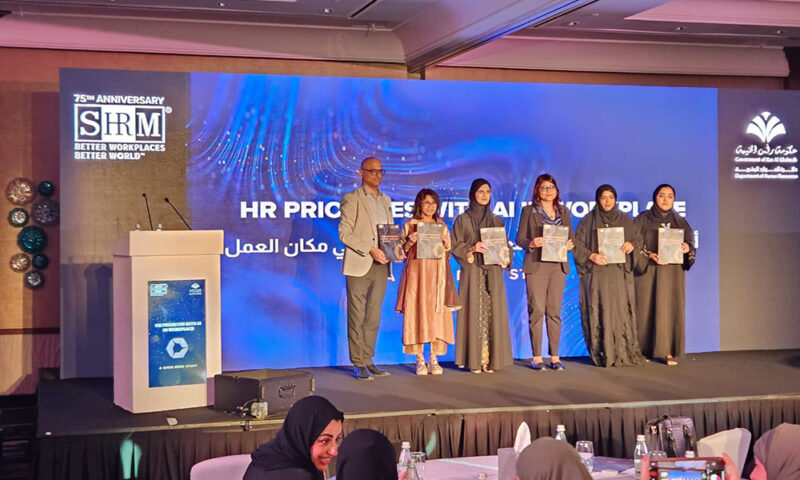
SHRM recently launched a pioneering research report titled ‘HR Priorities with AI in the Workplace | MENA Perspectives 2025’ offering critical insights into the evolving role of HR in an era defined by artificial intelligence (AI) and advanced technologies.
The findings, presented at an in-person hybrid event at the Palm Atlantis, Dubai – UAE, attended by elite HR professionals, business leaders, and technology experts, highlight the pressing priorities for HR as organizations prepare for 2025 and beyond.
Reshaping HR functions
SHRM report examines how AI is reshaping core HR functions—from talent acquisition and employee engagement to workforce planning and decision-making—while spotlighting the strategies HR leaders must adopt to successfully navigate these changes.
“HR department of RAK is poised to work with international HR Leaders like SHRM to bring important data points on how AI is changing the landscape of HR and organizations. We are glad to extend our support and resources to such initiatives from the forefront,” emphasized Dr. Mohamed Abdullatif Khalifa, Director General, Department of Human Resources, Government of Ras Al Khaimah.
“HR is at the forefront of one of the most significant workplace transformations in modern history,” stated Achal Khanna, CEO-SHRM East, SHRM. “As artificial intelligence becomes integral to business operations, the role of HR evolves from traditional practices to data-driven, strategic decision-making. This research empowers HR professionals to anticipate and act on the profound shifts that AI will bring,” she continued.
Key research findings
HR priorities and key challenges: The report identifies Talent Acquisition & Retention, Employee Health & Well-Being, and Talent Development (including managing performance) as top HR priorities over the next two years.
Impact of AI Adoption in HR: The report underscores the growing emphasis on analytics and learning & development as pivotal areas for AI adoption within HR across the region. Notably, it also highlights significant investment in AI-driven tools and technologies, particularly in recruitment, onboarding, and workforce planning.
Hurdles in AI Implementation: Data privacy and cybersecurity remain paramount concerns across nearly all industries. Notably, respondents from the manufacturing and heavy industries sectors highlighted challenges in integrating AI platforms with legacy HR management systems.
Readiness to embrace and leverage AI in HR: A notable 33.53% of organizations expressed confidence that their HR teams are well-prepared to lead the integration of AI into HR functions. Additionally, 43.35% of respondents identified digital literacy as the most critical skill for the future, emphasizing its importance in navigating the evolving landscape of HR technology and innovation
“As we move toward 2025, the intersection of HR and AI will determine how organizations thrive in the future of work,” added Vivek Arora, Managing Director, SHRM MENA. “SHRM is committed to helping HR professionals understand the opportunities and challenges posed by AI, and this research is a crucial step in that journey,” he concluded.
